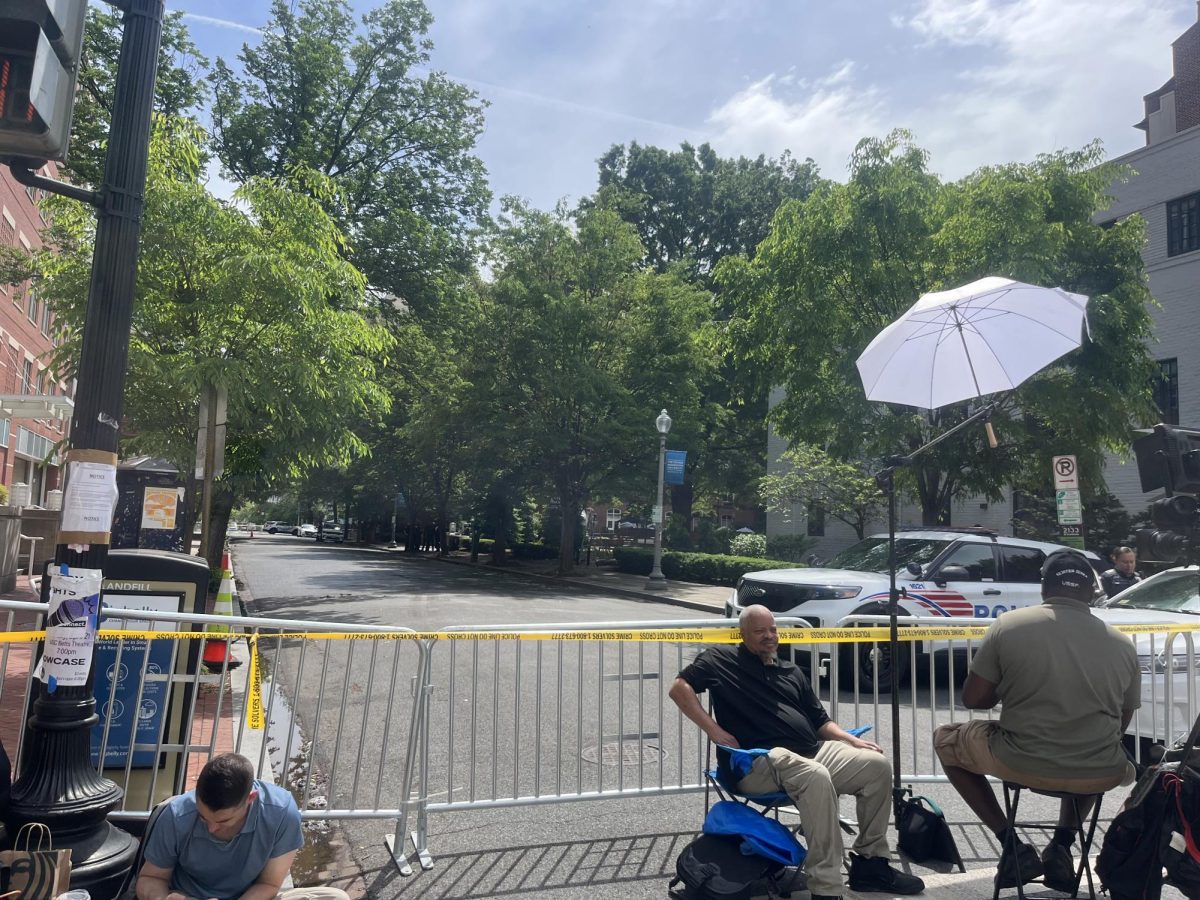Mayoral candidate and D.C. Councilmember Tommy Wells (D-Ward 6) spoke about his experience on the D.C. Council and his election platform Tuesday evening.
The event was co-sponsored by the Georgetown University Student Association and the Georgetown University College Democrats, and GUCD President Trevor Tezel (SFS ’15) introduced Wells. Prior to serving on the city council, Wells served as director of the D.C. Consortium for Child Welfare and helped develop a program that finds homes for children with AIDS. He also helped create the D.C. Family Court.
Wells was elected to the council in 2006, where he previously served as the chair of the Committee on Human Services; he is the current chair of the Committee on Public Works and Transportation.
Thus far, one of Wells’ most noted accomplishments has been the implementation of the District’s five-cent tax on plastic bags, which has helped to reduce river pollution and fund cleanups.
“He’s become a voice for ethics reform in a city that sorely needs it,” Tezel said.
During his speech, Wells emphasized battling corruption. In early November, Wells introduced several amendments to a campaign finance bill currently in front of the D.C. Council, complaining that rules were not stringent enough.
“I have a different kind of campaign. It’s very much kind of a values, purpose-driven campaign,” Wells said.
Wells added that he is the only candidate who will not be accepting any corporate donations in the race, the first mayoral candidate in D.C. to ever do so.
“Every check, every donation I take has somebody’s name on it,” Wells said. “I am raising the money I need to run a great campaign, so it can be done.”
In addition to ethical reform, Wells said that he plans to focus on the District’s youth education system.
“Education remains very important to me,” Wells said. “I believe that the way you really bring back neighborhoods and ensure that you have diversity is that you have to have an elementary school within 10 minutes’ walking distance of every family.”
According to Wells, youth outreach is vital to reducing crime, particularly if students are able to find employment. Wells pointed to his Living Wage for All D.C. Act, which would raise the District minimum wage from $8.25 per hour to $10.25 per hour over two years.
“I’m willing to go higher, but I think that if we just focus on what the amount is, we miss the opportunity to have a very progressive bill,” Wells said. “We have to think about what is the impact on young people to get their first job.”
Wells also spoke about his effort toward the decriminalization of marijuana possession, which he sees as a social justice issue regarding black rights in the District.
“We’re going to decriminalize marijuana in D.C., and we’re going to do it for the reasons of social justice,” Wells said.
Georgetown students attending the event asked Wells to address issues affecting relations with the Georgetown neighborhood, such as campus police jurisdiction in off-campus neighborhoods.
“I think there’s plenty of law already there to protect peace, order and quiet for neighbors,” Wells said. “I don’t think it needs to be expanded.”
He also expressed support for the expansion of D.C.’s public transport system and said he recognized the importance of flexibility to millennials in choosing transportation.
“The future of the city in terms of jobs, economic growth, being able to age in place, is based in public transit,” Wells said.
Overall, students said that they were impressed by Wells’ presentation.
“I am very supportive of his platform for youth involvement and environmental initiative,” GUCD member Makaiah Mohlar (COL ’16) said.
Students for a Better D.C. member Alyssa Peterson (COL ’14) agreed but expressed some concern about Wells’ position on the D.C. Human Rights Act and how it applies to students. The D.C. Human Rights Act would extend protection against discrimination based on matriculation status. Under such protection, some students believe Georgetown’s ban on cars for undergraduates implemented over the summer would be invalidated.
“My only concern is that he doesn’t feel that students are a protected class under the D.C. Human Rights Act,” Peterson said.














